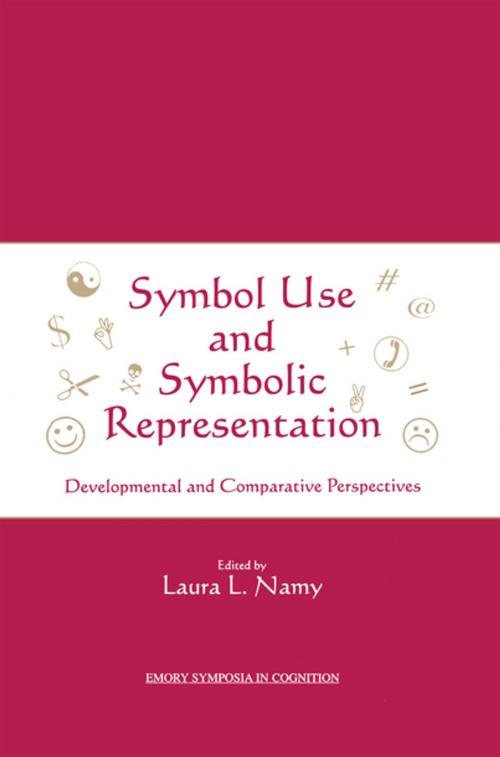Symbol Use and Symbolic Representation
Developmental and Comparative Perspectives
Nonfiction, Health & Well Being, Psychology, Child & Adolescent, Child Development, Cognitive Psychology| Author: | ISBN: | 9781351547352 | |
| Publisher: | Taylor and Francis | Publication: | September 25, 2017 |
| Imprint: | Psychology Press | Language: | English |
| Author: | |
| ISBN: | 9781351547352 |
| Publisher: | Taylor and Francis |
| Publication: | September 25, 2017 |
| Imprint: | Psychology Press |
| Language: | English |
Symbol Use and Symbolic Representation: Developmental and Comparative Perspectives is the proceedings of a workshop held at Emory University in 2002 to discuss the difficult and age-old issue of what makes a symbol symbolic. The issue shifts towards exploring the relation between apparent symbolic behavior and actual symbolic insight on the part of the user or recipient.
The workshop discussed the pitfalls of inferring symbolic understanding from apparently symbolic behaviors and possible criteria that would enable us to ascertain when a symbol is being employed in an intentional, communicative, representational manner. Broken down into three parts, this volume:
*focuses on the factors that influence the emergence of symbolic behavior in young, typically developing children;
*turns to an examination of individual and population differences in symbolic development and the ways variability in symbol use can inform the cognitive mechanisms underlying symbolic insight; and
*explores symbolic understanding in non-human animals.
The text ends with a synthesis of recurring themes, questions, concerns, and conclusions, and offers a new perspective on the process of understanding the relation between symbol use and symbolic insight.
Symbol Use and Symbolic Representation: Developmental and Comparative Perspectives is the proceedings of a workshop held at Emory University in 2002 to discuss the difficult and age-old issue of what makes a symbol symbolic. The issue shifts towards exploring the relation between apparent symbolic behavior and actual symbolic insight on the part of the user or recipient.
The workshop discussed the pitfalls of inferring symbolic understanding from apparently symbolic behaviors and possible criteria that would enable us to ascertain when a symbol is being employed in an intentional, communicative, representational manner. Broken down into three parts, this volume:
*focuses on the factors that influence the emergence of symbolic behavior in young, typically developing children;
*turns to an examination of individual and population differences in symbolic development and the ways variability in symbol use can inform the cognitive mechanisms underlying symbolic insight; and
*explores symbolic understanding in non-human animals.
The text ends with a synthesis of recurring themes, questions, concerns, and conclusions, and offers a new perspective on the process of understanding the relation between symbol use and symbolic insight.















